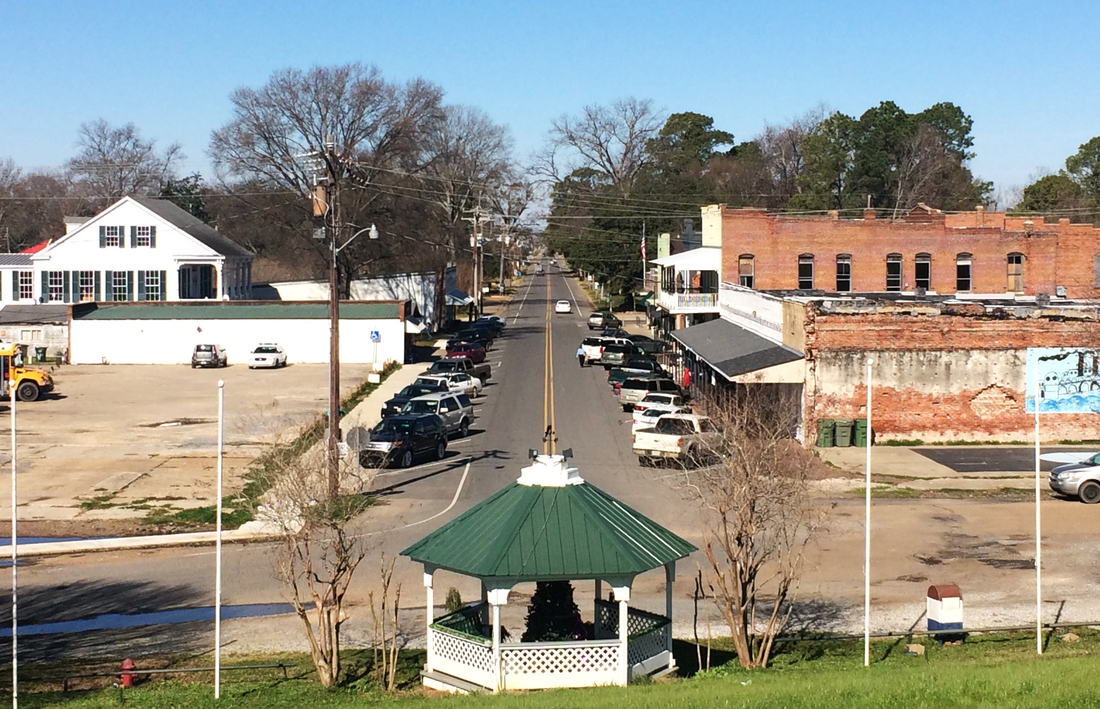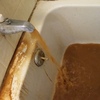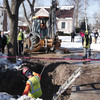Contaminated Water In St. Joseph, La., Leads To Public Health Emergency - NPR

St. Joseph, La., a town of about 1,100 people in northern Louisiana.
Courtesy of Garrett Boyte
hide caption
toggle caption
Courtesy of Garrett Boyte

St. Joseph, La., a town of about 1,100 people in northern Louisiana.
Courtesy of Garrett Boyte
Louisiana Gov. John Bel Edwards has declared a Public Health Emergency for the town of St. Joseph, after officials found water going to three buildings — one of them the town hall — was contaminated with lead or copper.
The governor said state testing showed elevated levels of lead at a private residence as well as the town hall building, on Thursday. The tests also showed "elevated levels of copper" at two private homes.
The governor's office issued a statement warning residents of St. Joseph, which is home to about 1,100 people, not to use tap water:
"The Town of St. Joseph has experienced water problems for years due to the poorly maintained and deteriorating water distribution system. Frequent breaks in the water distribution system provide a potential health risk because of the drop in water pressure.
"Out of an abundance of caution, the Louisiana Department of Health recommends that residents use an alternative source of water for personal consumption, including making ice, brushing teeth or using it for food preparation and rinsing of foods."
The state's emergency preparedness office said it will provide three liters of water per day to each person in town until the state and local governments come up with "a more permanent source" of water while the current distribution system is repaired.
Residents of St. Joseph have been concerned about the town's water quality for years, in part because it often doesn't look clean. In February, resident Garrett Boyte told NPR, "It's just a given fact that at some point during the week, you're going to have brown or yellow water."
Louisiana state health officer Jimmy Guidry told NPR in February, "Like most small water systems, when you don't have many customers, it's very expensive and it's not affordable."
He continued:
"It could take years. It's the kind of thing, which if you don't maintain it along the way, you're going to have to take care of it when it gets in trouble, and now it's in serious trouble. And it's going to be very costly to take care of those issues."
"What's happening here in St. Joseph got the attention it's gotten because Flint has made water a public issue," Boyte said, referring to the water crisis in Flint, Mich., where corrosive river water leached lead from pipes that delivered the supply to homes.
This week marked one year since Flint Mayor Karen Weaver declared a state of emergency. Unfiltered tap water in the city is still not safe to drink.
On Friday, a federal appeals court ruled the Michigan government must continue to provide bottled water to Flint residents who do not have adequate water filters, after the state argued the water quality had improved to the point where it was no longer necessary, according to The Associated Press.
Last week, Congress finally approved $170 million in aid to Flint, Steve Carmody of Michigan Public Radio reported, but "city officials say they'll need tens of millions more to replace all of the city's lead pipes. The state says about 600 pipes have been replaced this year; at that rate it would take half a century to replace more than 30,000 suspect lines."
Health
#Health


No comments: